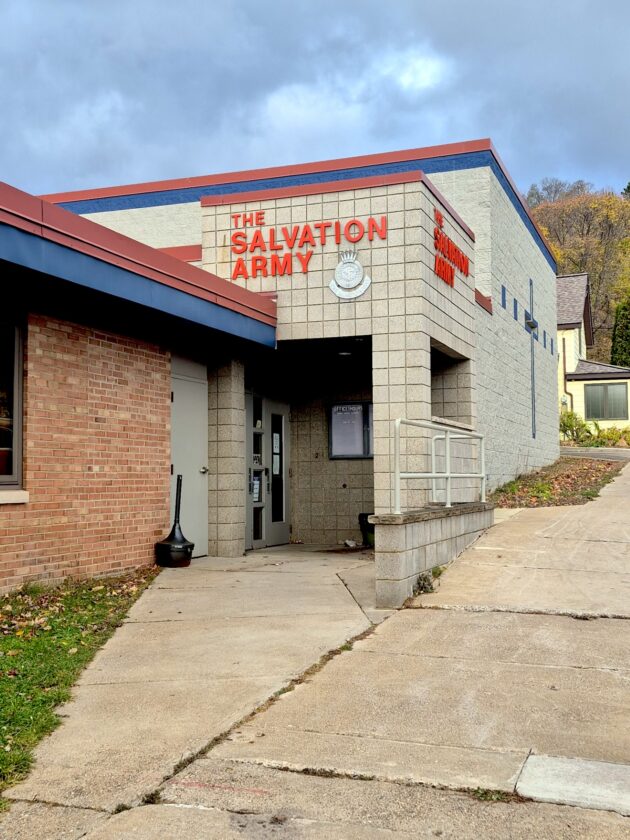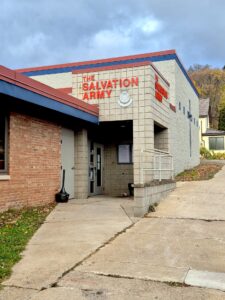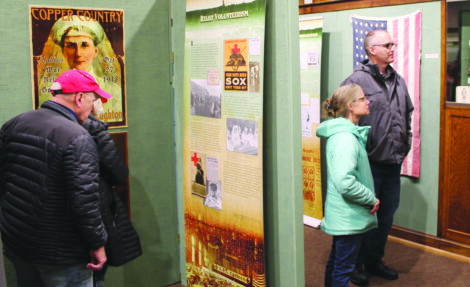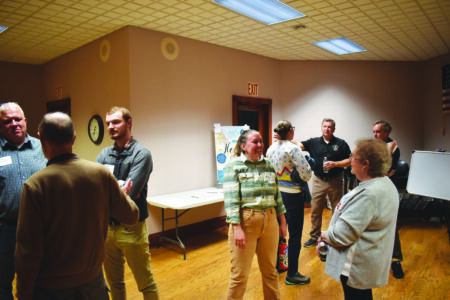Helping the homeless
Local organizations address serious issue

Graham Jaehnig/Daily Mining Gazette The Salvation Army Bread of Life Center is part of a local team that is addressing homelessness in the Copper Country, an issue that becomes pressing with the approach of each winter.
HANCOCK – The local community has seen a steady rate of homeless since the COVID-19 pandemic, says Salvation Army Site Director Pete Mackin. “I mean, it started during COVID,” he said, “but for the last five years we’ve seen persistent and steady homelessness.”
Homelessness is not limited to the Copper Country. According to a Radio Results Network (RRN) report, in Nov. 2024, while overall homeless numbers increased by only 2% statewide, the Upper Peninsula experienced an 18% increase in the number of people experiencing homelessness in 2023.
The lack of affordable housing is the primary cause of homelessness, the National Alliance to End Homelessness reported in Sept. 2025. For many, rising costs create an impossible choice between paying for housing and other necessities such as healthcare, groceries, or clothing.
Mackin sees the same issues locally, citing inflation of rental prices, rising utility rates, increasing food prices, and low wages.
“The vast majority of my cases are people who are working people who are right now, I’ve seen more and more people who are working, living out of their car than I have throughout this whole time.”
Mackin said the trend becomes more troubling when some people are working two jobs and are still homeless, sometimes for months.
“It’s a struggle because a friend or family puts you up on their couch, and now you’ve been there for three months, and now that’ strains family ties, friends ties because it is tough to find housing,” said Mackin, “and if you’re not driving you know maybe there’s housing and your job is in Houghton, but you can only find housing in Calumet or somewhere far away.”
Mackin said housing and homelessness are economic issues that can be resolved.
“If we invest in entry-level housing, that’s the simplest, cheapest place possible, because the more the person can save on bills the more they have to put towards a house, a business, or just getting stable,” Mackin said, “so we need basic, bare-bones minimum (housing).”
Mackin said one suggestion is to invest in that kind of housing.
“We as a community, whether that’s nonprofits or the government, need to invest in housing for our workforce, particular those who are entry-level.”
Finding solutions, even temporarily, is difficult in an area already facing a shortage of housing stock, Mackin said, but local charities are confronting the homeless issue.
“Each case is a unique challenge that usually we can resolve,” he said. “I mean, it’s a really good team of people now addressing homelessness in the area. Between Lutheran Social Services, Community Action, St. Vincent’s, Helping Hands, myself, there’s a really solid team addressing homelessness, and usually we can do it in a timely manner, but in the meantime, where do you put them up?”
Usually, the answer, at least on a temporary basis, is motel vouchers which, Mackin said, are admittedly limited. But even vouchers can also present problems.
“The only challenge with motel vouchers,” said Mackin, “is when somebody has a severe mental health or substance abuse issue, that’s not appropriate for a hotel because there’s tourists and people. It’s not you shouldn’t have somebody that’s potentially hazardous.”






